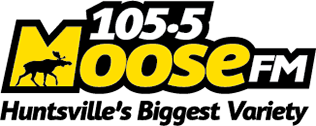The Trillium Lakelands District School Board (TLDSB) is joining a lawsuit against tech giants Meta (which operates Facebook and Instagram), Snap Inc. (Snapchat) and ByteDance Ltd. (TikTok).
The lawsuit was started in March by the Toronto District School Board, Toronto Catholic District School Board, Peel District School Board, and Ottawa-Carleton District School Board with them saying in a joint statement it’s because the popular apps are “negligently designed for compulsive use, have rewired the way children think, behave, and learn, leaving educators and schools to manage the fallout.”
The lawsuit is being led by Neinstein LLP, a Toronto-based boutique litigation firm. The lawsuit has been named “Schools for Social Media Change.”
It calls on the tech companies to redesign their apps to “keep students safe” and seeks compensation for “the losses related to tackling the crisis social media has created in our schools.”
Wes Hahn, director of education for TLDSB, says dealing with frequent cell phone usage was a “significant challenge” for staff prior to the COVID-19 pandemic, but explains the isolation many young people dealt with only heightened the problem. “Our mental health counsellors were seeing a rise in anxiety,” he says. “We were seeing behaviour issues, aggressive behaviour.”
TLDSB joins the lawsuit a month after it welcomed the mandate from the Ministry of Education. It detailed new rules about how cell phone usage would be handled in the classroom which will, essentially, keep them out of sight and out of mind.
Hahn outlines how the ministry has mandated the rules must be in place for the upcoming school year. However, he points out TLDSB has had similar rules in place prior to the ministry decision, but this gives them a consistent foundation to work with. “For us, we’re going to continue focusing on the good learning,” adds Hahn.
He admits the school board – like many others – has continued to expand its use of technology because of the online model that was used during the pandemic when staff and students weren’t allowed to be in class. “Social media is not a bad thing but the design of the products that were mentioned in the lawsuit […] are designed to be addictive and create compulsive behaviour in students,” says Hahn.
The investment in technology won’t stop anytime soon with Hahn pointing out “that’s the future” but adds when the products being used – whether by students or staff – are “targeted at getting kids to be compulsively addicted to it”, there is a problem.
Hahn suggests it’s not on the school board nor teachers to parent students, however, with the issue continuing to grow and affecting what’s happening in the classroom, he says “we have to take action.”
“It’s disrupting our learning, kids are disengaged, they can only think of their phone, getting back on their phone, into social media,” continues Hahn.
Hahn reassures those concerned about how this will affect day-to-day operation at schools. “From our standpoint here, it’s not going to affect the way we do our work,” says Hahn. “It’s not taking anybody away from their work. Staff are focused and kids are going to come to school and continue to learn.”
Along with the four school boards who the lawsuit in March and TLDSB, the Dufferin-Peel Catholic District School Board, York Catholic District School Board, Ottawa Catholic District School Board, District School Board of Niagara, and private schools Holy Name of Mary College School in Mississauga, Ont. and Eitz Chaim in Thornhill, Ont. joined the suit.
“This isn’t against social media,” says Hahn. “This is against the product and the design of the product.”





